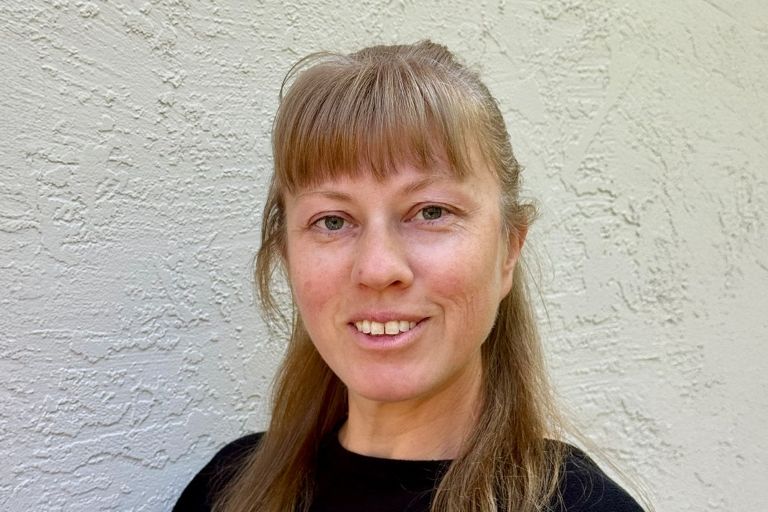The Irrigation Association, Fairfax, Virginia, connected members with elected officials and federal agencies to discuss policies affecting the industry during its annual fly-in event in Washington, D.C., March 19-21.
Topics of discussion included the farm bill, business policy and guest worker programs.
For Natalie Stone, senior manager of utility B2B at Rachio, Denver, Colorado, the experience meant providing context on industry topics to legislators. This was her first year attending.
“One of my biggest takeaways from the event was the importance of setting the stage and using stories in order to put our industry’s issues into perspective,” she says.
Stone added that one of the main themes of discussion during meetings with members of Congress was the value that the industry can bring to communities across the country, particularly around the industry’s contribution in terms of conservation.
“Precision technology was a notable topic throughout the fly-in, as policymakers acknowledged the importance of using just the right amount of water, in the right ways, at the right time,” she says. “From the most efficient nozzles for crops to weather-based scheduling for landscape irrigation controllers, precision technology is a vital component of efficient irrigation and protecting our water resources. It was a great reminder of how our industry’s technology and innovation can have a direct impact on conservation.”
One of the key priorities pertaining to conservation for the association during the event was to bring awareness to the Water Conservation Rebate Tax Parity Act, S.2430, which was introduced during the 117th Congress.
For Bruno Kiep, associate product manager, Zimmatic and FieldNet Controls at Lindsay, Omaha, Nebraska, the fly-in provided an opportunity to describe the advancements the industry is making and advocate directly for ways to help advance it.
“The market will continue to push for further innovation and technological announcements, so the key for future policy directions is that we continue to promote those that are advancing not only in water efficiency but all resource management,” he says. “In the irrigation sector we like to say that smart water use also leads to other better resource management such as soil health, energy efficiency, as well carbon emissions reductions. The IA and its members are the best pathway to reciprocate the voice of our customers and get that message across to the policymakers. As our customers win with great policy, the industry and the association come out as winners in the same boat.”
According to Kiep, the fly-in highlighted the association’s focus uniting industry efforts to prioritize conservation and efficiency to align with policymakers’ and stakeholders’ goals for addressing environmental and food security challenges.
“The key takeaway was that collaboration is most effective,” he says. “Sustainability and efficiency of resources are something that the industry, growers and policymakers know are requirements going forward. With the continued growth of the population, food security will continue to lead to further increases in production while trying to limit the resource use.”
Stone says the event served as a pivotal platform for both networking within the industry and learning directly from policymakers about the sector’s critical issues and the solutions it can provide.
“To prospective future attendees, I would say that the Irrigation Association fly-in is not only a chance to expand your network and push our industry forward, but it is also a fantastic opportunity to learn how policymakers think about our industry’s issues and to grow your communication skill set.
As some seasoned attendees shared with me, the fly-in is all about education — it is a chance for us, as industry leaders, to educate policymakers about the latest technologies we’re developing, the issues we and our customers are encountering, and the creative solutions our industry has to protect the environment and conserve water.”
Bisconer honored with irrigation award
 The American Society of Irrigation Consultants, Huntington, Michigan, honored Inge Bisconer, CID, CLIA, managing member of Surf ‘N Earth Enterprises, with the Ivy Munion Langendorff Women in Irrigation Award during the ASIC National Conference in Victoria, British Columbia, on May 7.
The American Society of Irrigation Consultants, Huntington, Michigan, honored Inge Bisconer, CID, CLIA, managing member of Surf ‘N Earth Enterprises, with the Ivy Munion Langendorff Women in Irrigation Award during the ASIC National Conference in Victoria, British Columbia, on May 7.
The accolade is given to women who have significantly contributed to the irrigation industry, embodying the spirit and dedication of Ivy Munion Langendorff, a past president of ASIC known for her advocacy for the profession.
Bisconer, who has dedicated over four decades to the field, is celebrated for her expertise in microirrigation, commitment to sustainability and efforts to improve water use efficiency in agriculture.
Currently serving as president of the Irrigation Association, Bisconer is recognized for her outreach initiatives and the development of educational materials and software aimed at enhancing the profitability and sustainability of agricultural practices. Her dedication to fostering a new generation of industry leaders and advocating for increased diversity within the field underscores her impactful career, according to an ASIC release.
2024 E3 program applications are now open
 The Irrigation Association has created a program that focuses on providing irrigation students (E3 learners) and faculty members (E3 leaders) with exposure, experience and education that revolves around the irrigation industry.
The Irrigation Association has created a program that focuses on providing irrigation students (E3 learners) and faculty members (E3 leaders) with exposure, experience and education that revolves around the irrigation industry.
The IA invites E3 recipients to the annual Irrigation Show and Education Week. Irrigation E3 learners and leaders will receive an education and travel award to attend the 2024 Irrigation Show Nov. 4-7 in Long Beach, California. Recipients are selected annually based on an application process.
E3 recipients will have the opportunity to take education classes, attend industry sessions, explore the trade show floor and spend time with the 2024 E3 program lead sponsor, The Toro Company.
For more information, visit irrigation.org.
IA lists controller reg concerns to California Energy Commission
The Irrigation Association, Fairfax, Virginia, submitted a letter to the California Energy Commission, Sacramento, California, regarding its Landscape Irrigation Controllers Proposed Standards.
 The association’s letter highlights a number of concerns with the standard, including the practicality and feasibility of implementing certain proposed measures, potential increased costs for both the industry and end users, deviations from established Environmental Protection Agency, Washington, D.C., WaterSense specifications, challenges associated with mandatory bundling of plug-in and add-on components, the inclusion of battery-operated controllers which may not suit all applications, and the timing of the implementation which could disrupt the seasonal nature of irrigation product sales.
The association’s letter highlights a number of concerns with the standard, including the practicality and feasibility of implementing certain proposed measures, potential increased costs for both the industry and end users, deviations from established Environmental Protection Agency, Washington, D.C., WaterSense specifications, challenges associated with mandatory bundling of plug-in and add-on components, the inclusion of battery-operated controllers which may not suit all applications, and the timing of the implementation which could disrupt the seasonal nature of irrigation product sales.
“In crafting our response to the proposed efficiency standards for landscape irrigation controllers, we aimed to convey both our support for advancing water and energy conservation in California and our concerns about the practical implications of these regulations,” says Nathan Bowen, Irrigation Association advocacy and public affairs vice president.
The commission will now review comments made before proceeding to the next phase of the process.
“Our comments to the CEC on behalf of the industry emphasized the need for a balanced approach that leverages existing successful programs like EPA’s WaterSense and seek to avoid unnecessary complications that could hinder, rather than help, our shared conservation goals,” says Bowen.
IA advocates for delay in Corporate Transparency Act filing deadlines
The Irrigation Association, alongside a broad coalition of organizations representing thousands of small businesses, signed a letter addressed to the leaders of the Senate Committee on Banking, urging for the postponement of the filing deadlines under the Corporate Transparency Act.
The letter, sent to Chairman Sherrod Brown, D-Ohio, and Ranking Member Tim Scott, R-South Carolina, on March 19, advocates for the passage of S. 3625, the Protect Small Business and Prevent Illicit Financial Activity Act, introduced by Scott.
 The legislation seeks a one-year delay of the CTA’s filing deadline, aiming to provide small businesses and the Financial Crimes Enforcement Network with additional time to understand the new reporting requirements and to mitigate the risk of severe penalties for noncompliance. The call for a delay is further supported by the recent United States District Court for the Northern District of Alabama ruling, which found aspects of the CTA unconstitutional, although this decision currently applies only to members of the National Small Business Association.
The legislation seeks a one-year delay of the CTA’s filing deadline, aiming to provide small businesses and the Financial Crimes Enforcement Network with additional time to understand the new reporting requirements and to mitigate the risk of severe penalties for noncompliance. The call for a delay is further supported by the recent United States District Court for the Northern District of Alabama ruling, which found aspects of the CTA unconstitutional, although this decision currently applies only to members of the National Small Business Association.
The letter highlights concerns that the CTA has become a “bureaucratic nightmare” for America’s smallest businesses, imposing complex reporting requirements and risking sensitive personal information. It points out that the majority of affected entities are small businesses, often with 20 or fewer employees or less than $5 million in revenue, which are least equipped to navigate these regulatory burdens.
Furthermore, the signatories argue that the current compliance timeframe does not align with the congressional intent of providing covered entities two years to adapt, nor does it account for the low rate of compliance observed since the filing commenced.
The Irrigation Association’s involvement in this initiative underscores the organization’s commitment to protecting small businesses within the agricultural and irrigation sectors from undue regulatory burdens, ensuring they have the necessary time and resources to comply with new laws without hindering their operations, according to Nathan Bowen, Irrigation Association advocacy and public affairs vice president.
“Passing this legislation is a critical step toward ensuring that businesses within our sector have the necessary time to navigate and adapt to this new regulatory burden,” says Bowen. “We call on Congress to take action and to help businesses in our industry to comply without undue strain.”





